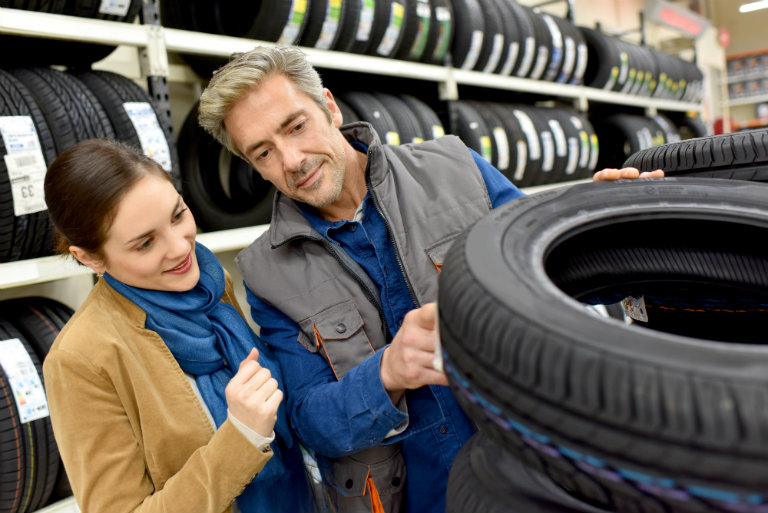Third Coast Auto Group Official Blog
What tires should I get to replace my old ones?
By Product Expert | Posted in Tips and Tricks on Wednesday, May 16th, 2018 at 8:29 pm
At a certain point your tires will wear out. While regular tire rotation and balancing can help extend the life of your tires, you will need new ones roughly every two to five years, depending on how much driving you do. If you are asking yourself “What tires should I get to replace my old ones?” there are a few things to keep in mind.
Choose quality, not frugality
The best tires for your vehicle are the ones it was designed for. If you can get tires approved by your car manufacturer, they will probably perform with your vehicle very well. However, for some brands that may also be one of the more expensive options.
Getting good tires pays off, even if they cost more in the short term. Tires from a respectable manufacturer will generally last longer, and offer better traction than cheap tires from less-respected brands. However, new, cheaper tires may offer more tread than pre-owned tires from a good manufacturer. Depending on your budget, and how much you drive, you will have to weigh the pros and cons for yourself.
Getting the right size
One very important part of shopping for the right tires is getting the size right. While quality and weather considerations might vary depending on your budget, getting the right size tires is very important. This will be listed in your owner’s manual (which you can find online for many makes and models) or should be written on your current tires, assuming that you have the original tires that came with the vehicle. Badly fitted tires could be dangerous and might cost you in fuel efficiency and vehicle performance. If you can’t figure out what size your tire should be, someone at an automotive store should be able to help you.
Weather and driving demands
A final thing to consider when getting tires is the type of tire you want on your vehicle. Summer tires are designed for driving in dry, on-road conditions, while winter tires offer more grip in snow and ice. Both options are great for their respective season, but all-season tires may offer the right balance of traction in rain or sunshine. If you have any weather variability where you live, we would recommend all-season tires.



